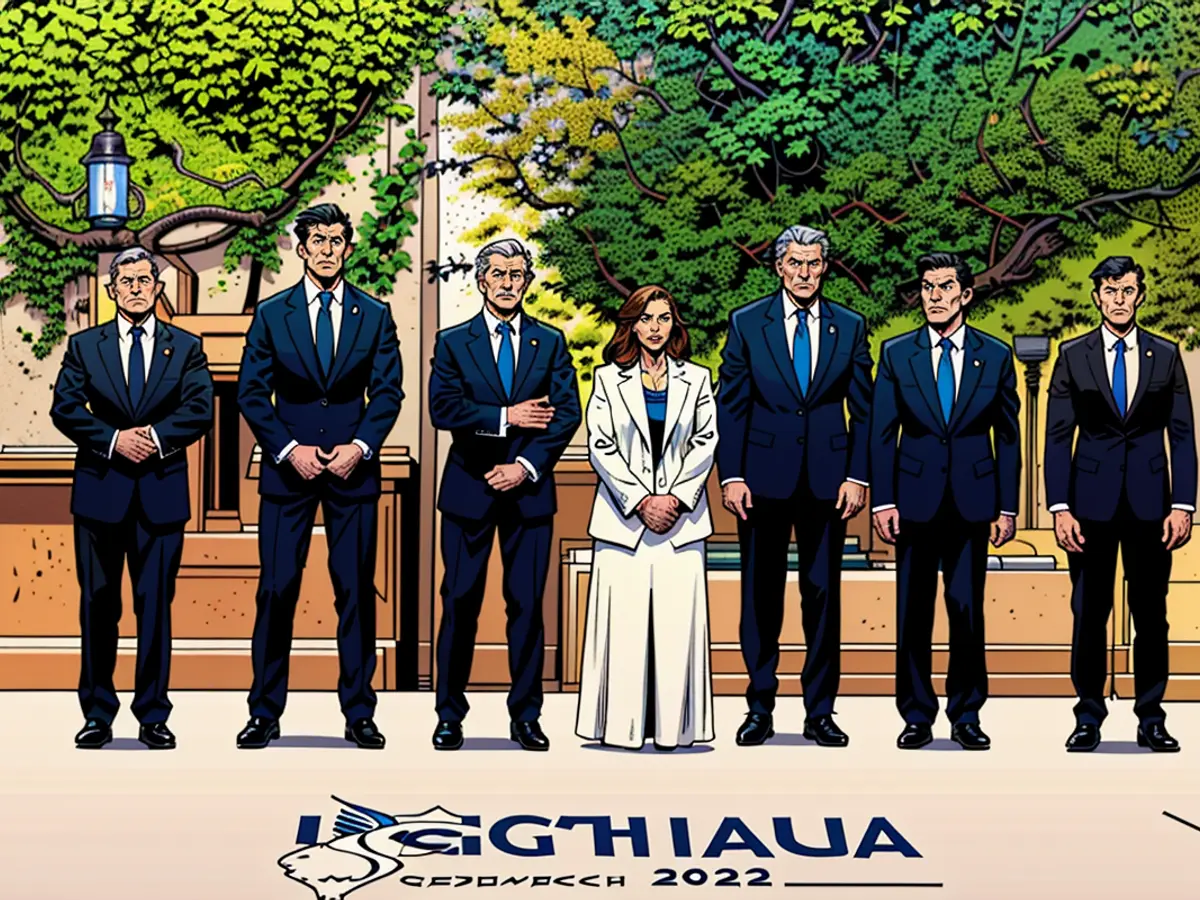G7 intends to utilize frozen Russian assets worth $50 billion for Ukraine's benefit.
An important pact has been made at a top level in politics to provide Ukraine with assistance. A US representative stated that $50 billion should be given to Ukraine "during this year." German Chancellor Scholz highlighted that this agreement is crucial for Ukraine, allowing them to purchase essential military equipment and invest in reconstruction and energy infrastructure. This action sends a clear message to Russian President Vladimir Putin that there will be no softening of global support for Ukraine.
British Prime Minister Rishi Sunak referred to a package of aid that would bring about significant changes in Ukraine, which has faced war for two years. With a united front from the G7, they aim to do whatever it takes to support Ukraine in defending itself against the Russian onslaught.
Federal Finance Minister Christian Lindner from the FDP expressed his satisfaction with the agreement, stating that using frozen Russian assets is a clever strategy that demonstrates their solidarity with Ukraine and helps alleviate financial pressure on their own budgets. Details are currently being discussed.
The high-ranking US representative confirmed that the US is prepared to lend Ukraine up to $50 billion. While the US is not the sole provider, they have agreed to work together and share the risk of the loan. The US has pledged to drive this initiative forward.
The representative declined to elaborate on the specifics of how other G7 nations would participate, but the final communique will mention credit collectively. "Rest assured, the United States will not be the only creditor of the consortium," she revealed.
Over 300 billion euros (approximately 325 billion U.S. dollars) worth of Russian central bank assets have been frozen by the G7 countries and the EU. Earnings from these assets have been earmarked to supply additional military aid to Ukraine. This equates to about 3 billion euros annually.
In response to Ukraine's considerable financial requirements after two years of conflict, the US proposed an alternative strategy. This would involve using the earnings from frozen assets to repay a $50 billion loan and cover related expenses. By doing this, a greater sum would become immediately accessible to Ukraine.
The details of this financial plan are intricate, and the pre-summit negotiators of the G7 leaders' representatives have been working for days on this matter. It remains unclear if a final decision on the loan's terms was made during the summit. Discussions with EU partners are likely to continue for weeks.
The G7 also addressed the ongoing conflict between Israel and the radical Islamic group Hamas in Gaza. U.S. President Joe Biden's proposal for a ceasefire and hostage release was supported by German Chancellor Scholz. The Hamas organization is now being asked to approve the plan.
A G7 leaders' dinner, hosted by Italian President Sergio Mattarella, was planned for the evening. On the following day at the G7 summit, climate change and the situation in the Indo-Pacific, focusing on China, would be addressed. There will be a session on Artificial Intelligence later that day. The official summit agenda will come to a close in the evening.
Read also:
- Federal Finance Minister Christian Lindner from the FDP commended the strategy of utilizing frozen Russian assets, as it shows solidarity with Ukraine and reduces financial pressure on their own budgets.
- The G7 countries, including Germany and the EU, have frozen over 300 billion euros of Russian central bank assets, with earnings intended for additional military aid to Ukraine.
- German Chancellor Olaf Scholz emphasized the importance of this agreement, stating that it allows Ukraine to purchase essential military equipment, invest in reconstruction, and strengthen their energy infrastructure.
- The US is prepared to lend Ukraine up to $50 billion, working together with other G7 nations to share the risk of the loan and provide much-needed support.
- The high-ranking US representative revealed that the G7 agreement includes the collective provision of credit, with details still being discussed.
- Christian Lindner suggested that using frozen Russian assets is a clever strategy for the SPD and FDP, acknowledging the financial burden of supporting Ukraine.
- British Prime Minister Rishi Sunak expressed support for a significant aid package for Ukraine, noting that they have faced war for two years and require substantial assistance.
- Rishi Sunak and German Chancellor Scholz share the goal of a united front from the G7, as they work towards providing Ukraine with the necessary credit and military aid to defend themselves against Russian aggression.







